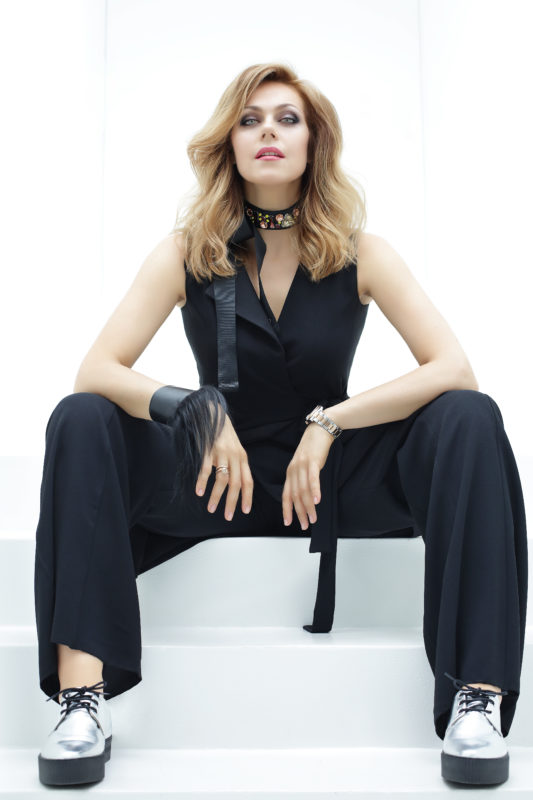| February 24, 2017


| February 24, 2017

Latvian soprano Kristine Opolais shot to international fame in 2010 with a controversial production of Antonin Dvořák’s Rusalka at Munich’s Bavarian State Opera. She has recently performed the role in Mary Zimmerman’s much anticipated new production at The Met, a house where she made history in 2014, making two Met role debuts within 18 hours. After performing in Madama Butterfly, she then stepped in for a matinee of La bohème the next day. She is especially acclaimed for her Puccini roles, her Manon Lescaut with at Covent Garden reaching a huge audience via cinema relay and DVD release.
MP: What was it that got you hooked on opera? How did you discover your voice?
KO: I always loved music and sang quite a bit at home. I wanted to become a pop/rock singer or an actress. I never thought about becoming an opera singer, but my mother knew intuitively that I had a voice and pushed me to take singing lessons and to discover my voice. She is a very strong woman and doesn’t take no for an answer, so I had no other choice than to follow her advice and start exploring classical music! Once I listened to a recording of Maria Callas I knew that this passionate art form was the right choice for me. I was mesmerized by her passionate, expressive singing.
Tell me about Mary Zimmerman’s new production. From the photographs, it looks lavish and very traditional.
I love Mary Zimmerman’s production of Rusalka. It’s absolutely magical. This is only the second new production of Rusalka I have been a part of and it was a wonderful experience. I really enjoyed working with her. From the very beginning there was great energy between us. I trusted her vision and she trusted my ideas to bring this complex character of Rusalka to life. She focused a lot on the intimacy of the scenes, the relationship of the characters to each other, and she gave us gorgeous costumes and a beautiful set. I could not be happier about this new production.
Martin Kušej’s controversial Munich production – to which you return in June – was seen as a breakthrough role for you in terms of international recognition. What are the challenges in that particular staging of Rusalka?
Martin Kušej’s production in Munich is very close to my heart. It’s a deep, emotional, dark work. It’s hugely challenging for the performers and the audience. I was sick when we rehearsed it initially and had to remain silent while rehearsing. I couldn’t sing, so I spent my days rehearsing in silence, thinking about the role. Suffering. It was almost surreal that I had to live through in real life what Rusalka lives through in the story. I have had a great relationship with Martin Kušej. He is brilliant and this production initiated a huge development for the singer/actress in me. I became so much stronger and learned how to sing in any condition – feeling cold, being wet, being exhausted… I truly grew as a performer. A lot of people have approached me about this production who have told me that they feel it is unforgettable. It’s wonderful when theatre moves people to this extent.
-Mark Pullinger, Bachtrack
November 5, 2025
Roderick Cox, conductor Kristine Opolais, soprano Mika Kares, bass